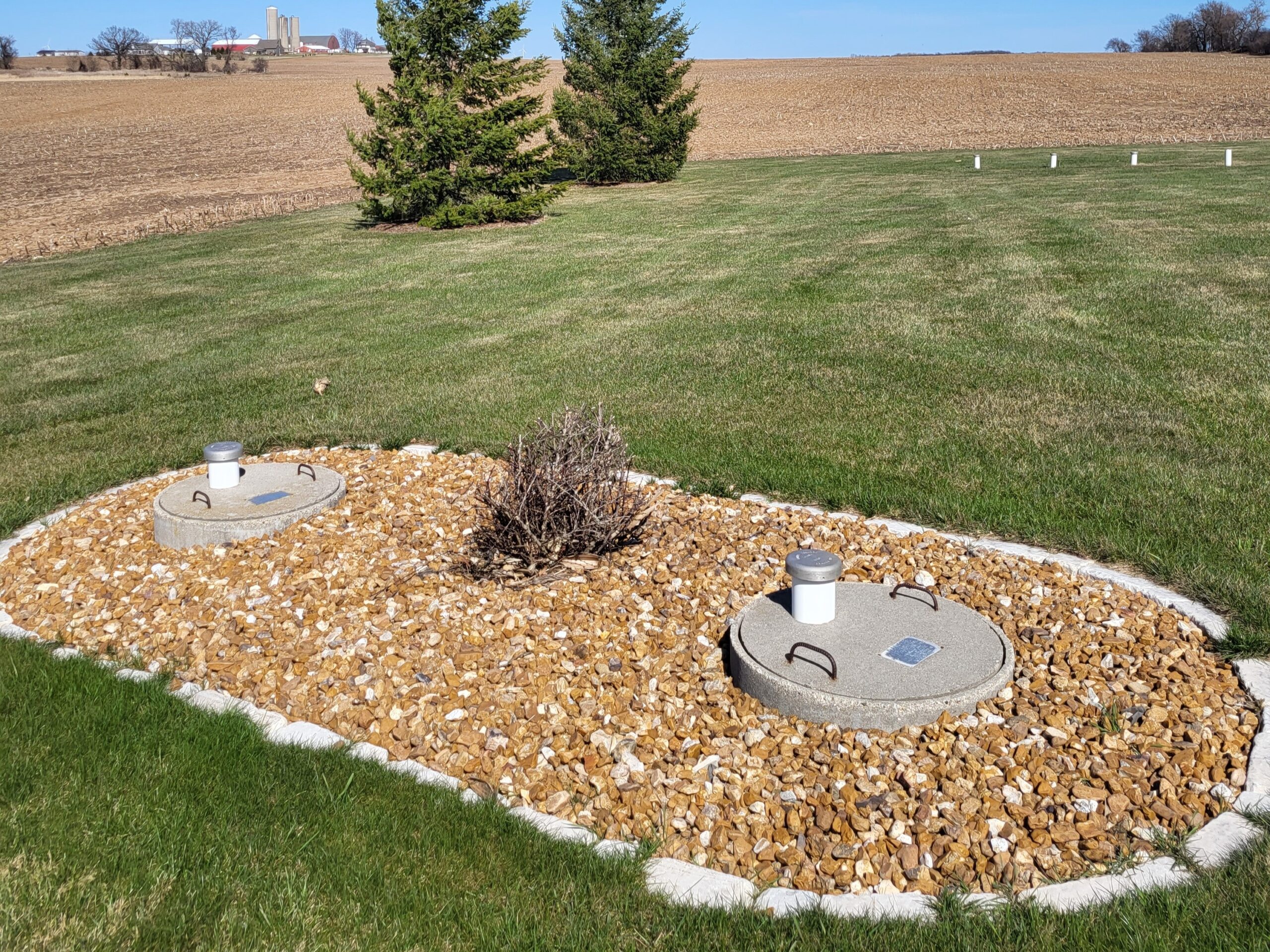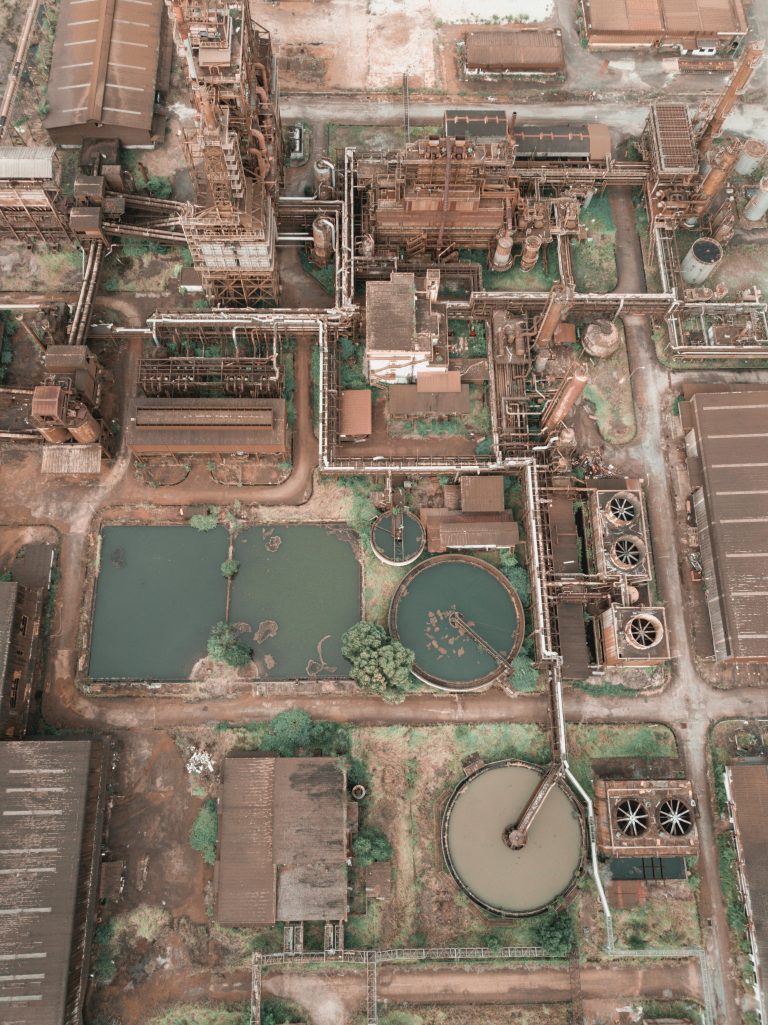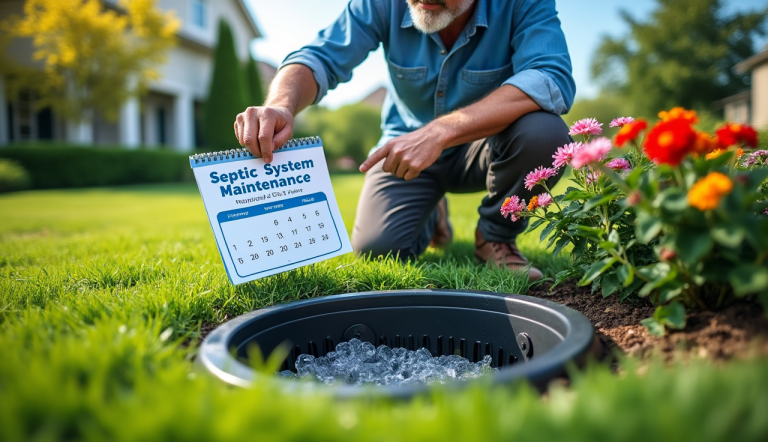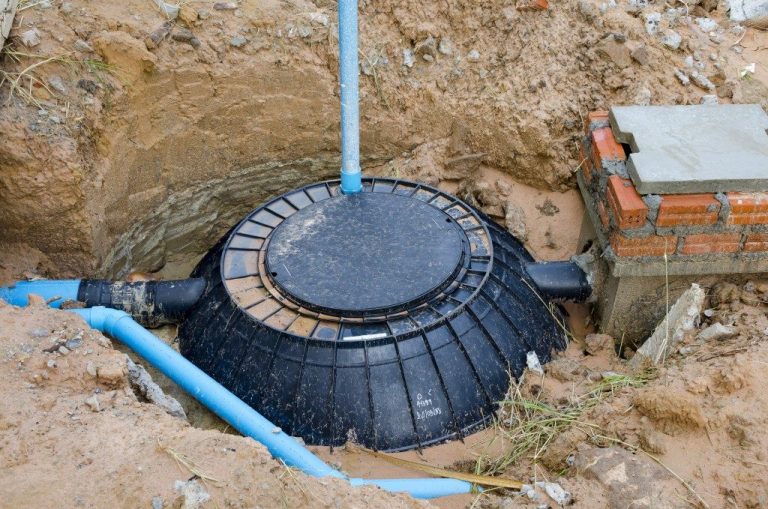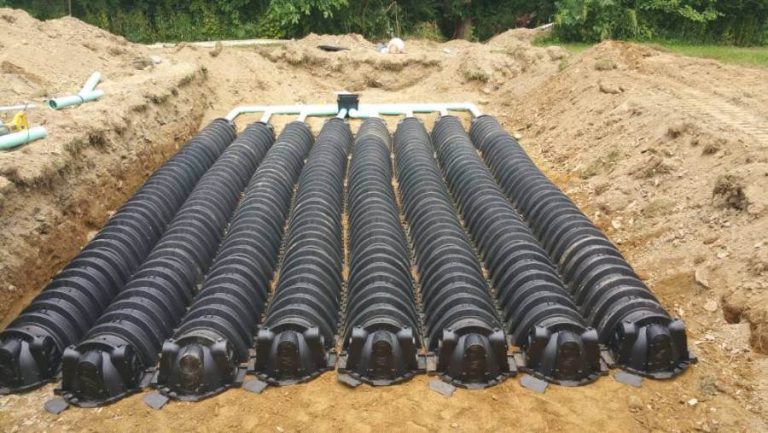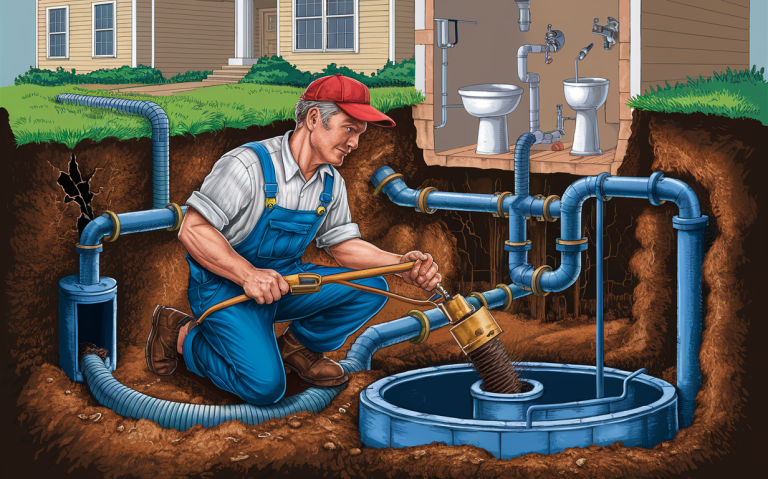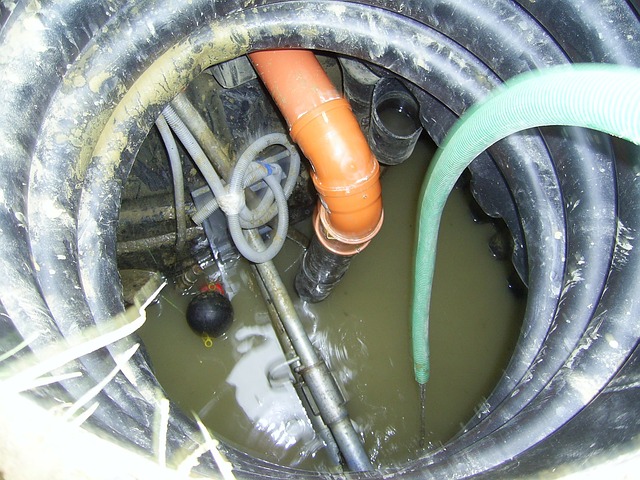Protect Your Septic: Landscaping and Drain Field Protection for Septic System Maintenance
Landscaping and drain field protection for septic system maintenance. Plant choices, water management, and preserve your wastewater system.
Proper landscaping and drain field protection are essential for maintaining a healthy septic system in Middletown, New York. By implementing the right techniques, you can ensure your septic system functions efficiently while creating an attractive outdoor space.
This guide will provide you with practical tips and local insights to help you maintain your septic system through smart landscaping choices.
Table of Contents
Key Takeaways
- Choose native plants with shallow root systems for your drain field area
- Avoid planting trees or shrubs near the septic system components
- Maintain proper grass coverage over the drain field to prevent erosion
- Redirect surface water away from the septic system area
- Avoid using heavy machinery or driving vehicles over the drain field
- Implement water conservation practices to reduce strain on your septic system
- Schedule regular septic tank pumping and inspections with local professionals
Understanding Landscaping and Drain Field Protection for Septic System Maintenance
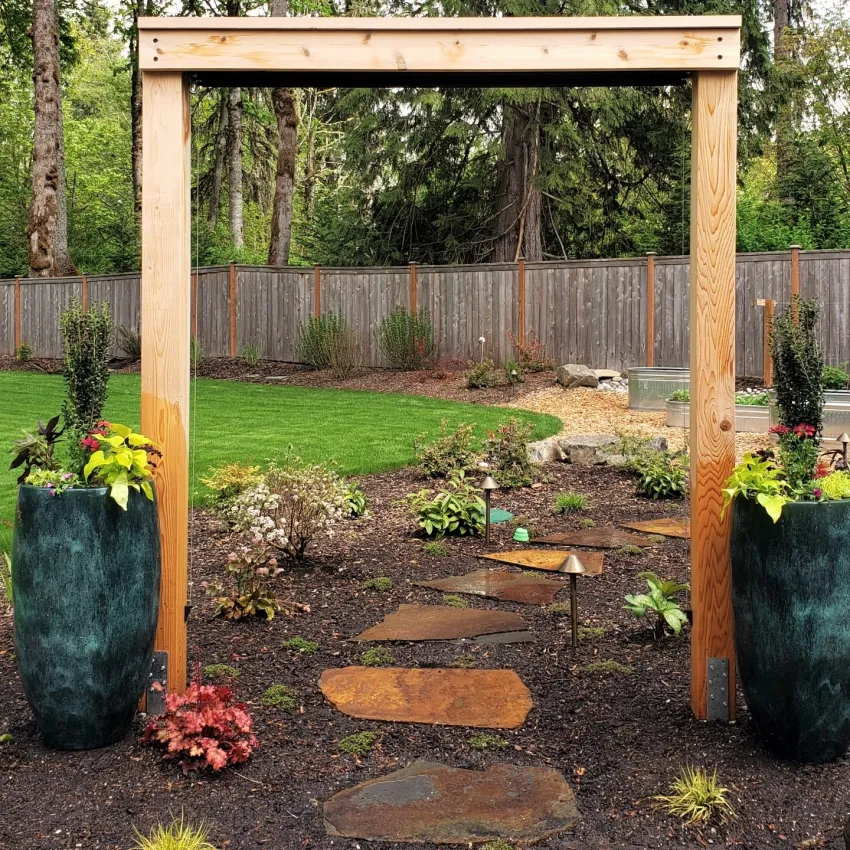
Before diving into landscaping tips, it’s crucial to understand how your septic system works in the context of Middletown’s climate and soil conditions. Middletown experiences cold winters and moderate summers, affecting septic system performance. The area’s soil composition, which ranges from loamy to rocky, also plays a role in drain field efficiency.
A typical septic system in Middletown consists of a septic tank and a drain field. The tank separates solids from liquids, while the drain field filters the wastewater before it returns to the groundwater. Proper landscaping around these components is vital for their longevity and effectiveness.
The Importance of Drain Field Protection
Your septic drain field is a crucial component of your wastewater treatment system. It filters and purifies the effluent from your septic tank before it re-enters the groundwater. Protecting this area through thoughtful landscaping is essential for several reasons:
- Prevents soil compaction
- Enhances soil aeration
- Reduces erosion
- Promotes evapotranspiration
- Maintains proper drainage
By focusing on these aspects, you can significantly extend the life of your septic system and avoid costly repairs.
Choosing the Right Plants for Your Drain Field
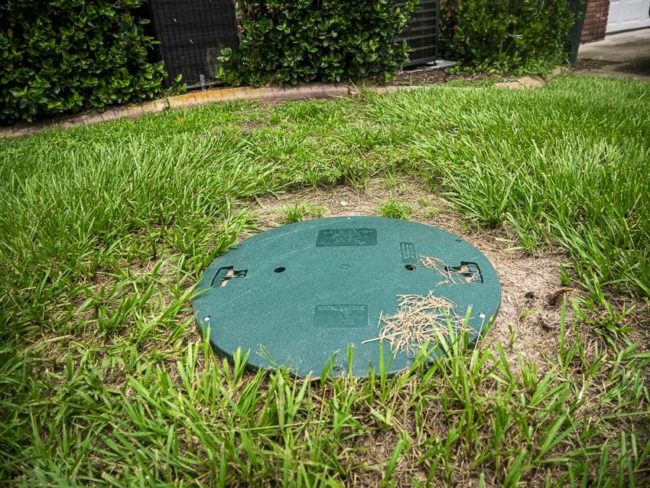
When it comes to landscaping and drain field protection for septic system maintenance, plant selection is crucial. The right plants can help maintain soil stability and promote proper drainage without interfering with the septic system’s function.
Native Grasses and Groundcovers
Landscaping and drain field protection for septic system maintenance, opt for native grasses and groundcovers that thrive in Middletown’s climate. These plants have shallow root systems that won’t damage your drain field pipes. Some excellent choices include:
- Pennsylvania sedge
- Little bluestem
- Creeping Phlox
- Wild strawberry
These plants are not only low-maintenance but also provide aesthetic value to your landscape.
Perennial Flowers for Drain Field Beauty
If you want to add some color to your drain field area, consider planting perennial flowers with shallow root systems. Some suitable options for Middletown include:
- Black-eyed Susan
- Coneflower
- Butterfly weed
- New England aster
These flowers attract pollinators and add visual interest without compromising your septic system’s integrity.
Plants to Avoid Near Your Septic System
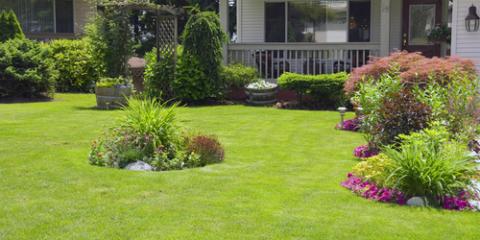
While some plants are beneficial for your drain field, others can cause significant damage. Avoid planting trees and shrubs with aggressive root systems near your septic components. Some common trees in Middletown to keep away from your septic area include:
- Silver maple
- Willow
- Birch
- Ash
These trees have extensive root systems that can infiltrate and damage septic pipes and tanks.
Maintaining Landscaping and Drain Field Protection for Septic System Maintenance and Proper Grass Coverage
A healthy lawn over your drain field is one of the best ways to protect it. Grass helps prevent erosion, promotes evaporation, and adds a layer of insulation during Middletown’s cold winters. Here are some tips for Landscaping and Drain Field Protection for Septic System Maintenance:
- Mow regularly, but avoid cutting grass too short
- Water lightly during dry spells to prevent soil from cracking
- Avoid using heavy fertilizers that can seep into the drain field
- Overseed in fall to maintain thick coverage
Remember, a well-maintained lawn not only protects your septic system but also enhances your property’s curb appeal.
Managing Surface Water and Drainage
Proper water management is crucial for protecting your septic drain field. Excess water can saturate the soil, reducing its ability to filter wastewater effectively. Here are some strategies to manage surface water:
- Install gutters and downspouts to direct rainwater away from the drain field
- Create swales or berms to divert runoff
- Avoid irrigating the drain field area
- Fix any leaky outdoor faucets promptly
By implementing these measures, you can prevent water from overwhelming your septic system, especially during Middletown’s rainy seasons.
Landscaping Dos and Don’ts for Septic System Owners
To help you make the best decisions for your septic system, here’s a quick reference guide Landscaping and Drain Field Protection for Septic System Maintenance of dos and don’ts:
| Do | Don’t |
|---|---|
| Plant shallow-rooted grasses and flowers | Plant trees or shrubs near the drain field |
| Maintain a healthy lawn over the drain field | Use heavy machinery on or near the septic area |
| Direct surface water away from the septic components | Install patios, decks, or structures over the system |
| Use mulch sparingly in landscaped areas | Allow livestock to graze on the drain field |
| Keep accurate records of your system’s location | Drive vehicles over any part of the septic system |
Seasonal Considerations for Septic System Care
Middletown’s distinct seasons require different approaches to septic system care throughout the year. Landscaping and drain field protection for septic system maintenance, Here’s a seasonal guide to help you protect your drain field:
Spring
- Inspect your system for any winter damage
- Clean gutters to ensure proper drainage
- Begin regular lawn maintenance
Summer
- Water grass lightly during dry spells
- Monitor for signs of septic system stress during peak usage
- Avoid overwatering landscaped areas
Fall
- Remove fallen leaves from the drain field area
- Overseed lawn to maintain coverage
- Schedule a professional inspection before winter
Winter
- Avoid plowing or shoveling snow onto the drain field
- Minimize water usage to prevent overloading the system
- Keep septic tank access clear for emergency servicing
By following these seasonal tips, you can ensure your septic system remains in good condition year-round.
Water Conservation and Its Impact on Your Septic System
Conserving water is not just good for the environment; it’s also beneficial for your septic system. By reducing the amount of water entering your system, you can improve its efficiency and longevity. Landscaping and drain field protection for septic system maintenance, here are some water conservation tips for Middletown residents:
- Fix leaky faucets and toilets promptly
- Install low-flow fixtures and appliances
- Spread out laundry loads throughout the week
- Take shorter showers
- Use dishwashers only when full
Implementing these practices can significantly reduce the strain on your septic system and help prevent drain field issues.
The Role of Professional Maintenance
While proper landscaping and homeowner care are essential, professional maintenance is crucial for the long-term health of your septic system. Regular pumping and inspections by certified professionals can prevent minor issues from becoming major problems.
In Middletown, it’s recommended to have your septic tank pumped every 3-5 years, depending on household size and usage. During these service visits, professionals can also inspect your drain field for any signs of trouble.
Recognizing Signs of Septic System Problems
Even with the best care, septic systems can develop issues. Being able to recognize the signs of problems early can save you time and money. Watch out for these warning signs:
- Slow-draining sinks or toilets
- Gurgling sounds in the plumbing
- Wet or spongy areas in the yard
- Foul odors near the septic tank or drain field
- Sewage backing up into the house
If you notice any of these signs, contact a local septic professional immediately.
Educating Your Family About Septic System Care
Protecting your septic system is a family effort. Educate all household members about proper septic system care, including:
- What can and cannot be flushed or poured down drains
- The importance of water conservation
- Why the drain field area should be treated with care
- How to recognize signs of septic system problems
By involving everyone in septic system care, you can ensure that your system remains healthy for years to come.
Local Resources for Septic System Owners
Middletown and Orange County offer various resources for septic system owners. Here are some local contacts that can provide additional information and assistance:
- Orange County Health Department: Offers guidance on septic system regulations and maintenance
- Cornell Cooperative Extension of Orange County: Provides educational resources on landscaping and water conservation
- Local septic service companies: Can offer professional maintenance and repair services
Don’t hesitate to reach out to these resources for expert advice tailored to Middletown’s specific conditions.
Balancing Beauty and Function in Your Septic System Landscape
Creating an attractive landscape while protecting your septic system is achievable with the right approach. By choosing appropriate plants, maintaining proper drainage, and following best practices for septic system care, you can enjoy a beautiful yard without compromising your wastewater treatment system.
Remember, your septic system is a vital part of your home’s infrastructure. By implementing the landscaping tips and maintenance practices outlined in this guide, you’ll not only protect your investment but also contribute to the health of Middletown’s environment. With a little effort and knowledge, you can maintain a septic system that functions efficiently and a landscape that enhances your property’s beauty for years to come. Landscaping and drain field protection for septic system maintenance. Plant choices, water management, and preserve your wastewater system. For more information, you can visit our website or contact us.

